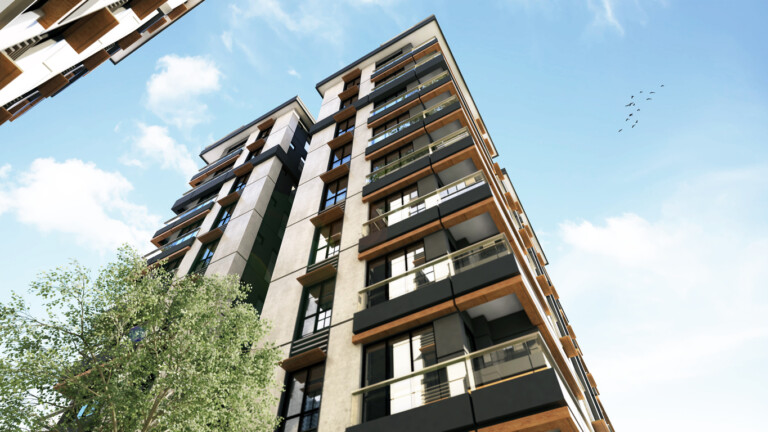
By Scott Lamb and Kim Do
What is one thing all contractors are concerned about? Our guess is that they are all concerned that they do not receive prompt payment for their work.
In response to this constant concern, legislatures across Canada have introduced prompt payment legislation for construction projects. Below is a brief update on prompt payment legislation in Canada.
- Ontario – In Force Since October 2019
On December 12, 2017, Bill 142: Construction Lien Act Amendment Act, 2017 received royal assent. This bill amended the Construction Act, R.S.O. 1990 c.30 to introduce prompt payment and adjudication provisions which came into force in July 2018 and October 2019, respectively. These amendments streamlined the payment process by prescribing timelines for payment between owners, contractors and subcontractors. For example, once an owner receives a “proper invoice” from the contractor it must pay within 28 days. If the owner does not pay all or part, it must give the contractor a “notice of non-payment” within 14 days. In turn, the contractor must pay its subcontractors within 7 days of receiving payment from the owner or issue a “notice of non-payment”. Similarly, each subcontractor then pay its sub-subcontractors or suppliers within 7 days of payment, unless it provided a “notice of non-payment”. A party may contract around the timing of the issuance of “proper invoices”, but it cannot contract out of these obligations.[1]
The mandatory adjudication regime provides that a dispute between the parties, including valuation of services or materials provided, or disputes relating to the notice of non-payment, must be referred to adjudication. The determination is made within 30 days of the adjudicator receiving all documents and is binding until a determination is made by a court, an arbitration, or a written agreement. It can be set aside by an application for judicial review on limited grounds, such as reasonable apprehension of bias of the adjudicator, fraud, or lack of jurisdiction. Adjudication may be subject to the procedures set out in the contract, but only as long as they comply with the legislation.
The Ontario Dispute Adjudication for Construction Contracts oversees the adjudication process and is responsible for various duties, including developing programs for the training of adjudicators. According to its 2021 annual report, approximately 50 adjudications were commenced in the ODACC’s 2021 fiscal year, claiming $8,709,658.98. In the ODACC’s 2021 fiscal year 34 decisions were rendered (including those commenced in the 2020 fiscal year). The total amount required to be paid as a result of these decisions was $908,122.83. Eight adjudications remained open at the end of the ODACC’s 2021 fiscal year, with the others terminated, largely from settlement.[2]
- British Columbia – Future Legislation
On May 28, 2019, Bill M-223 – 2019: Builders Lien (Prompt Payment) Amendment Act, 2019 was introduced in the legislature at first reading and although it did not address adjudication, it provided for mandatory payment and dispute timelines borrowed from Ontario. Under this bill, an owner has to pay a contractor within 28 days upon receiving a “proper invoice” unless it issues a “notice of non-payment” for all or part of the payment within 14 days. The contractor must then pay its subcontractors within 7 days or issue a “notice of non-payment” to its subcontractors. In turn, the subcontractors must pay its sub-subcontractors and suppliers within 7 days or issue a “notice of non-payment”. Again, although the parties can contract around the timing of the issuance of “proper invoices”, they cannot contract out of these payment obligations.[3]
Although Bill M-223 did not pass, it appears that new legislation is on its way. In November 2021, townhalls were held by the BC Construction Association, the Mechanical Contractors Association of BC, and the Electrical Contractors Association of BC highlighting the success of prompt payment legislation in Ontario and voicing support for similar legislation in B.C.. , Also in November 2021, the Select Standing Committee on Finance and Government Services released its Report on the Budget 2022 Consultation recommending prioritizing such legislation. On January 24, 2022, an industry working-group has been established to work with BC’s Ministry of the Attorney General, with a goal of tabling BC’s prompt payment legislation in Fall 2022.[4] [5]
- Alberta – In Force on August 29, 2022
On December 9, 2020, Bill 37: The Builders Lien (Prompt Payment) Amendment Act 2020, received royal assent prescribing mandatory payment timelines similar to those in Ontario. On February 25, 2022, Alberta proclaimed such legislation will be in force on August 29, 2022 and introduced regulations, including the Prompt Payment and Adjudication Regulation, elaborating on the adjudication process, which provides for voluntary submission of payment disputes. The Alberta legislation makes the determination of an adjudication final and binding. However, any party to the adjudication may commence a court action within two years after a notice of adjudication is sent (other than a judicial review). The decision of an adjudicator may be set aside by way of judicial review on limited grounds including legal incapacity, invalid contract, apprehension of bias, or fraud.[6]
- Saskatchewan – In Force as of March 1, 2022
The Saskatchewan government proclaimed its prompt payment legislation The Builder’s Lien (Prompt Payment) Amendment Act, 2019, into force on March 1, 2022, which establishes a regime similar to Ontario, providing for payment deadlines between owners, contractors and subcontractors and a mandatory adjudication process overseen by the Saskatchewan Construction Dispute Resolution Office to resolve disputes with binding decisions made within 30 days. However, adjudication decisions can be overturned in court or arbitration. The Builders’ Lien Amendment Regulations, 2020 elaborates on these regimes. [7]
- Manitoba – No Legislation
Manitoba attempted to enact prompt payment legislation first in April 2018 by way of Bill 218: The Prompt Payments in the Construction Industry Act and again on June 3, 2019 by way of Bill 245: The Prompt Payments in the Construction Industry Act.[8] Both attempts to pass legislation have been unsuccessful.
- Quebec – Pilot Project Underway
Quebec has a pilot project underway setting out a mandatory prompt payment and adjudication regime, flowing from Bill 108: An Act to facilitate oversight of public bodies’ contracts and to establish the Autorité des marchés publics. This legislation allows its government to evaluate the impacts of the measures implemented on industry and public bodies.[9]
- New Brunswick – Recommendations
New Brunswick’s Legislative Services Branch of the Office of the Attorney General released Law Reform Notes #42 in July 2019 and Law Reform Notes #43 in April 2020, recommending the introduction of prompt payment and adjudication in two phases: (1) a review and modernization of the existing statute; and (2) the introduction of the prompt payment and adjudication regimes. As part of the second phase, New Brunswick will continue monitoring the developments in other jurisdictions dealing with prompt payment and adjudication regimes. These steps are outlined in Law Reform Notes #44 released in February 2021.[10]
- Nova Scotia – Not Yet In Force
On April 12, 2019, Bill 119: Builders’ Lien Act (Amended) received royal assent. It awaits proclamation, but provides a regime similar to Ontario with timelines and procedure to be determined by regulations.[11]
- Federal – Not Yet In Force
On June 21, 2019, the Federal Prompt Payment for Construction Work Act received royal assent but to date is not in force. It provides a regime for federal public construction projects. Upon receiving a “proper invoice” an owner must pay the contractor within 28 days, and must issue a “notice of non-payment” within 21 days if it objects to paying all or part of an invoice (longer than the 14 day timeline seen in other jurisdictions). The contractor has 7 days on payment to pay its subcontractors or issue a “notice of non-payment”. In turn, the subcontractor has 7 days from receipt of invoice to either pay its sub-subcontractors or suppliers or issue a “notice of non-payment”. Adjudication under this legislation is binding on the parties unless there is a written agreement or the determination is set aside by a court order or arbitral award. [12]
Conclusion
While to date only Ontario and Saskatchewan have brought prompt payment legislation into force, Alberta will follow before the end of the summer. BC, Nova Scotia, New Brunswick and the Federal government appear to be on their way to bringing into force or passing prompt payment legislation. Prompt payment will become a feature of construction law across Canada in the near future. It will be important to monitor the experience of the jurisdictions which have brought into force prompt payment legislation as there will be many important issues to resolve around construction contract drafting, the jurisdiction of adjudicators and the relationship between a determination of an adjudicator and later court action. We will continue to update you on this important topic.
[1] Bill 142: Construction Lien Act Amendment Act, 2017, SO 2017, c 24 at s. 6.1, 6.3-6.6 and s. 13.5, 13.3, 13.6, 13.15 and 13.18 [here].
[2] Ontario Dispute Adjudication for Construction Contracts, “2021 Annual Report” (2021) at 23-24 [here].
[3] Bill M223 – 2019: Builders Lien (Prompt Payment) Amendment Act, 2019, 4th Sess, 41st Leg, British Columbia, 2019 (first reading 28 May 2019) at s. 2 (ss. 3.2-3.5) [here].
[4] BC Construction Association, “BCCA Briefing – Prompt Payment Special Edition” (November 2021) [here]; BC Construction Association, “Prompt Payment Moving Forward in BC” (9 November 2021) [here].
[5] Select Standing Committee on Finance and Government Series, “Report on the Budget 2022 Consultation” (November 2021) at 46, 102 [here]; BC Construction Association, “BC government takes action toward prompt payment legislation, establishes industry working group as next step” (24 January 2022) [here].
[6] Builders’ Lien (Prompt Payment) Amendment Act 2020, SA 2020, c 30 at s. 14 (ss. 32.2-32.5, 33.5-33.6) [here]; Builders’ Lien Amendment Regulations, 2020, Alta Reg 23/2022 at s. 19 [here].
[7] The Builder’s Lien (Prompt Payment) Amendment Act, 2019, SS 2019, c 2 at s. 6 (s. 5.3-5.6) and s. 7 (s. 21.21, 21.22, 21.5, and 21.52) [here]; Builders’ Lien Amendment Regulations, 2020, Sask Reg 92/2020 [here].
[8] Bill 218: The Prompt Payments in the Construction Industry Act, 3rd Sess, 41st Leg, Manitoba, 2018 [here]; Bill 245: The Prompt Payments in the Construction Industry Act, 4th Sess, 41st Leg, Manitoba, 2019 (first reading 3 June 2019) [here].
[9] Bill 108: An Act to facilitate oversight of public bodies’ contracts and to establish the Autorité des marchés publics, 1st Sess, 41st Leg, Quebec, 2017 (assented to 1 December 2017), SQ 2017, c 27 at s. 132 [here].
[10] Legislative Services Branch of the Office of the Attorney General, Law Reform Notes #42 (July 2019) [here]; Legislative Services Branch of the Office of the Attorney General, Law Reform Notes #43 (April 2020) [here]; Legislative Services Branch of the Office of the Attorney General, Law Reform Notes #44 (February 2021) [here].
[11] Bill 119: Builders’ Lien Act (amended), SNS 2019, c 12 at s. 2 [here].
[12] Federal Prompt Payment for Construction Work Act, SC 2019, c 29, s 387 at ss. 9-11, 15, 18, 22 [here].




